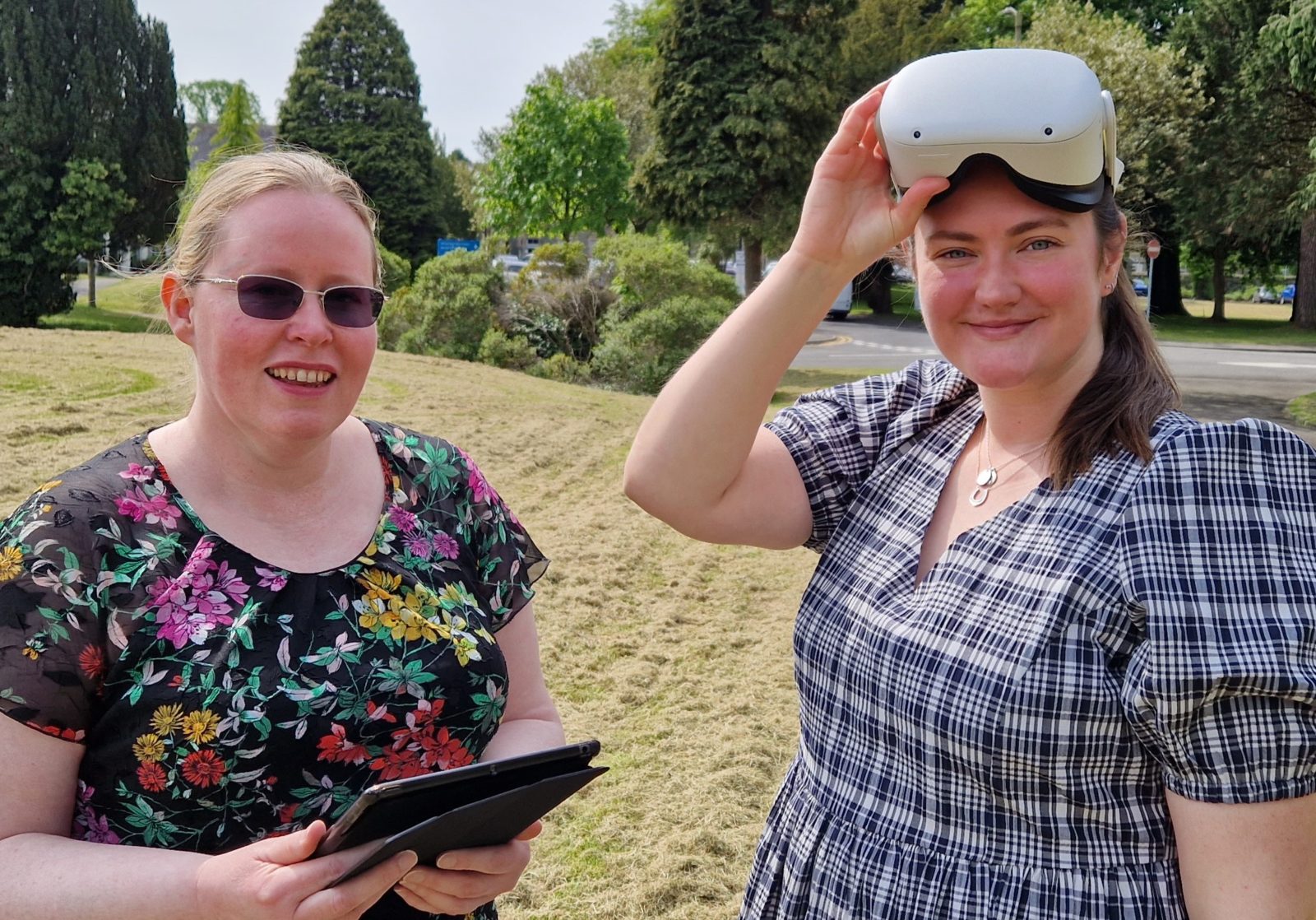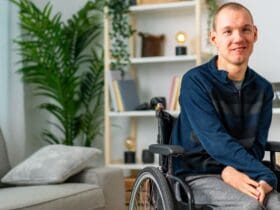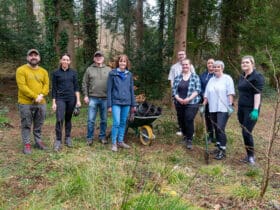Virtual reality (VR) is helping patients in a secure hospital unit experience the great outdoors.
The move is just one of several benefits brought about through the use of digital technology in the Swansea Bay’s Caswell Clinic – a medium secure, forensic mental health unit for men and women.
The project, which allows access to a VR head set with iPad, Chromebooks and tablets, is being supported by Digital Communities Wales.
Patients are also being taught how to use computers, set up email, use online bank accounts and access relaxation apps.
Access is individually assessed by the clinical teams and is always supervised with social media off limits.
Laura O’Connell (pictured above with colleague Kate Slennett), an occupational therapist in the unit, explained the approach.
She said: “We put a proposal for funding in back in 2021 and it was successful allowing us to loan 10 chrome books and the VR headset. We previously had just one internet enabled computer which we shared between the wards. So this has been of huge benefit.
“A lot of our patients didn’t have the best access to technology growing up so we are trying to get them up to the level of most people in the community, so they have better prospects when they move on from us.
“We’re teaching them how to use computers, how to use email and everyday tasks – many have never had an email address.
“For those who can’t go out, having an online banking account allows them a little independence and control in their lives when they have nothing else.
“And a couple have started Open University courses through the Chromebooks.
“One of our gentleman wrote a number of stories when he was younger and had no way of reading them as he has cataracts and his vision is impaired – now he can alter the size of the text and access them.
“There’s also a wide range of use for relaxation.”
Fellow occupational therapist, Kate Slennett, said: “It’s an opportunity to not be completely isolated from peer groups and what is going on in the outside world.
“It’s trying to help them with their digital literacy in terms of what goes on in the world so when they, hopefully, step into the community they are not left behind their peers.
“A lot of them have been incarcerated or in services for so long they haven’t had a chance to catch up with technology – even mobile phones weren’t a thing when some were taken into services.”
Kate has been teaching patients how to use the VR headset.
She said: “With something like YouTube 360 they can experience travel by visiting places virtually. If they are really passionate about the outdoors they can go on a virtual hike.
“We also have some mindfulness and relaxation apps which are really popular.
“We even have a Jurassic Park app where you can walk with dinosaurs.”
One patient said: “I have enjoyed using the Chromebooks and it’s nice having supervised internet sessions.
“I will be very sorry if they’re taken away as it’s changed our lives for the better.”
“This project is a great example of what can be achieved through creative collaboration. The Occupational Therapy service has worked with Digital Communities Wales for a number of years. This started with the loan of devices to enable virtual visiting during the pandemic so it’s great to see this relationship developing further.
“It’s so important that our services develop with the changing world and digital advances are an example of this.”
Robert said the support provided by DCW was not limited to services users as staff can also access their support.
He said: “The first session was an introduction to digital tools that can be used to support people with dementia and we have sessions planned that include using digital tools to learn Welsh and to provide support through the cost of living crisis.
“I’m very excited to see what the future brings with further collaboration with this excellent service.”








Leave a Reply
View Comments